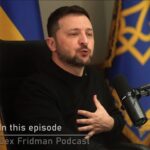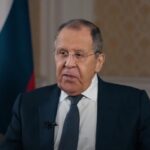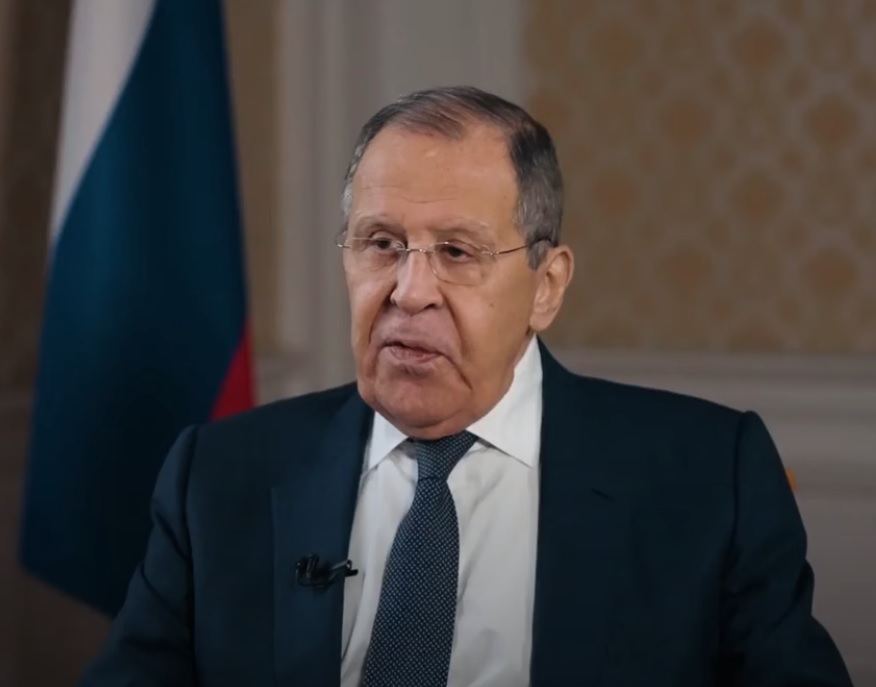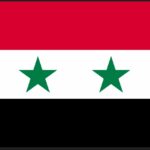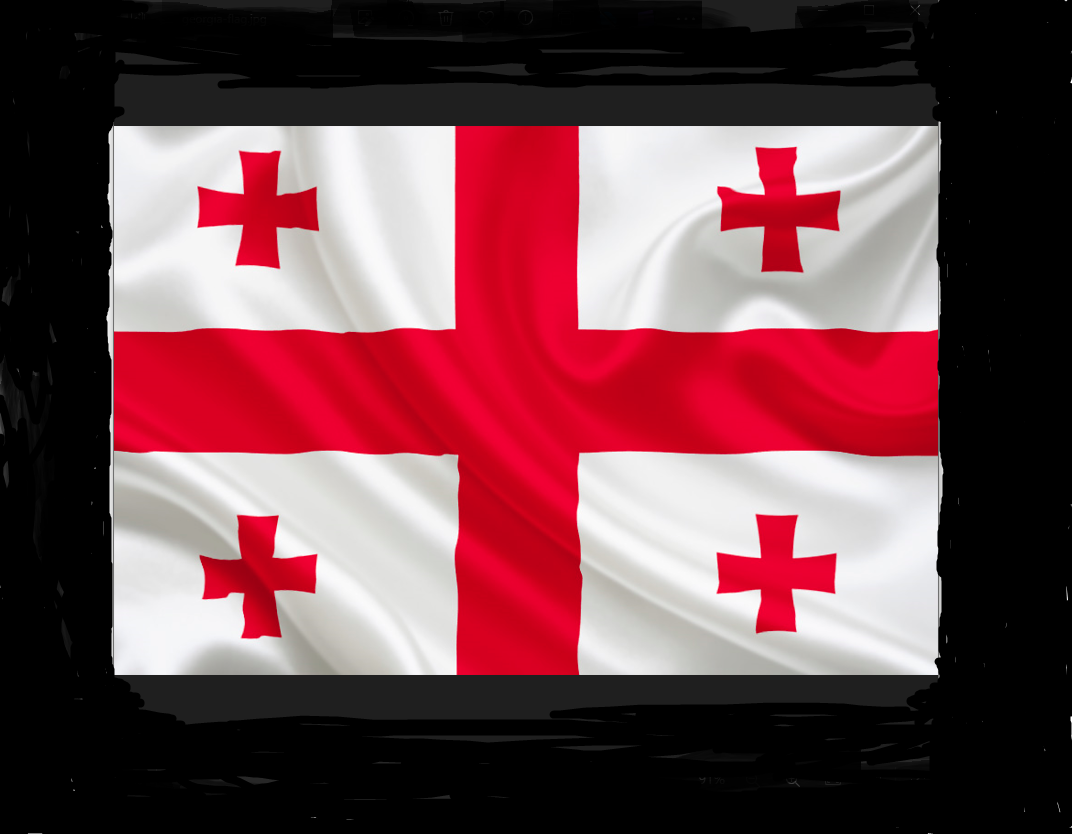Lex Fridman, a rather well-known American YouTuber, recorded a talk with Ukrainian President Volodymyr Zelenskyy. Two hours and a half. We are not going to retell what was said during the talk: the reader is strongly advised to familiarize himself with it. It is far more worthwhile to have a first-hand experience with a leader of a nation rather than listening to hours of reports and analyses by experts from the proverbial CNN or BBC. Whether or not the reader is going to listen to the talk, we only want to offer our take on the interview.
President Zelensky makes a bad impression overall. He talks a lot and he talks little sense. Watching the interview, you get the impression that the roles ought to be swapped and swapped in reality, not in imagination: Lex Fridman ought to be Ukraine’s president, Volodymyr Zelenskyy ought to take the interview. Lex Fridman looks elegant and talks sense; Volodymyr Zelenskyy looks like a member of a technical staff and spurts out a lot of meaningless verbosity. Lex Fridman cares about peace, about putting an end to the hostilities, while Volodymyr Zelenskyy only thinks about revenge and builds castles in the air to the tune of joining Ukraine to NATO or putting Russia’s president on trial.
Both gentlemen come from Ukraine, with this difference that Lex Fridman has lived for the last thirty years in the United States; both gentlemen are of Jewish descent; Russian is the mother tongue of either. Though they both are native speakers of Russian, Volodymyr Zelenskyy refuses to speak in Russian, although Lex Fridman encourages him to, although Lex Fridman more often than not uses Russian throughout the talk. Volodymyr Zelenskyy made a point of using Ukrainian or English, but since Ukrainian is not his mother tongue, he keeps switching from Ukrainian to English, to Russian and then back to English, to Ukrainian, to Russian. Volodymyr Zelenskyy keeps switching to Russian because that’s the language in which he can accurately convey what he means. If you decide to watch the interview, select at least for a while the original version, without English dubbing, without AI translation and voice-over: you’ll hear Volodymyr Zelenskyy speak the way he naturally does.
Though Lex Fridman adores his guest and lavishes the Ukrainian President with compliments, you get the impression that he grows irritated with him. Why? Because Volodymyr Zelenskyy has little to say, because Volodymyr Zelenskyy is fixated on a couple of ideas that are unfeasible, because Volodymyr Zelenskyy switches from language to language. While Lex Fridman needs an interpreter when Ukraine’s president speaks Ukrainian, to top it all Volodymyr Zelenskyy’s English is not fluent, which makes the communication hard. Just one tiny thing: the Ukrainian President keeps saying ‘wery’ rather than ‘very’, which is not a matter of accent as his apologists might be ready to say or a particular difficulty of English phonetics for a Russian-speaking man. No. Russian has the sound ‘v’ like in ‘very’ in all word positions, including words which like – вера /vera/ = faith, веры /very/ = of the faith – resemble the English word ‘very.’ Strange that he did not pick up the pronunciation of this one of the most frequently used words either at school or later in life. A detail? Yes, sure enough, but a detail that might reveal the Ukrainian President’s perception and cognition of reality: due to his frequent meetings with foreign politicians and diplomats, Volodymyr Zelenskyy hears ‘very’ almost every day several times and reproduces it as ‘wery.’ A small divergence from reality in terms of language that translates into a huge divergence from reality in other fields of the President’s. Russians occupy a quarter of his country, with the West being incapable of doing anything about it, but Volodymyr Zelenskyy is daydreaming about regaining all territorial losses, demands compensation and court martial for the aggressor; a million Ukrainian soldiers are estimated to have been killed or wounded, but Volodymyr Zelenskyy maintains that Russian casualties amount to 788.000; the West is slowly giving up on Ukraine, but President Zelenskyy says that Putin fears Trump, and so on, and so forth. Daydreaming, wishful thinking, conjuring up alternative realities, in a word: ‘wery’ replacing ‘very.’
While speaking Russian, Volodymyr Zelenskyy addresses Lex Fridman with the familiar singular ‘you’ rather than the official plural ‘you’ (something like using French ‘tu’ rather than ‘vous’, or German ‘du’ rather than ‘Sie’), while Lex Fridman keeps addressing the President with the formal and respectful plural ‘you.’ One would expect reciprocity on the part of the President.
Now compare the command of the English language and especially the content of speech, of statements, the concisenesses and precision of thought between what the Ukrainian president presents and what Sergei Lavrov, Russian Minister of Foreign Affairs, presents. Volodymyr Zelenskyy is lacking some dignity that becomes a diplomat, a dignity that Sergei Lavrov has. The Ukrainian President is fond of selecting words that are offensive – Putin is a killer, Putin is deaf (to arguments), Putin does not like his own country, Putin’s head is sick, Putin is a mammoth, Putin is about to conquer the world – words that make it difficult or impossible for the President of Ukraine to have any talks with the Russian leader. What if – just imagine – what if President Trump coerces President Zelenskyy to sit down at the negotiation table with President Putin? Ukraine’s President will lose face, will lose his integrity: he’ll be forced to talk to the killer, the mammoth, the madman.
Throughout the interview Lex Fridman behaves like a statesman: serious timbre of voice, language that is toned down, elegant clothes. Contrarily, Volodymyr Zelenskyy behaves like a garrulous plebeian dressed in wacky garb.
This longish interview is disappointing and pretty boring. It does not compare in any respect with the interviews given by Vladimir Putin or Sergei Lavrov. Yet, watch it at least for half an hour. Evaluate the personality, character, manners of the leader of Ukraine. That’s a good insight into his psyche, his mentality. It somehow reveals how he guides his country through turbulent waters. And remember one more time: of the few ways of accessing this video, select the original three-language version at least for a while. Do not let the AI make you believe that Volodymyr Zelenskyy’s English is better than it is. In the introduction to the whole material, Lex Fridman explains how to choose a language version.

